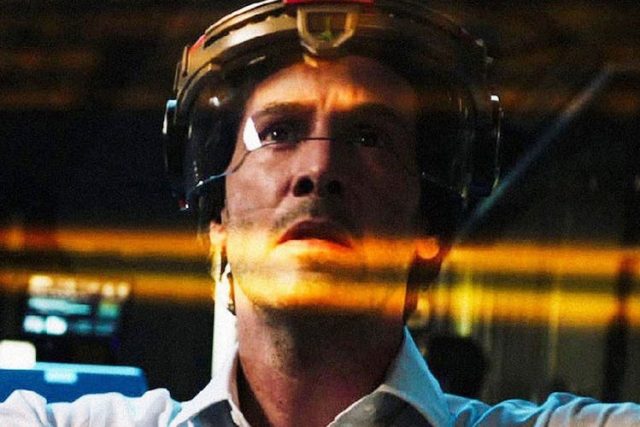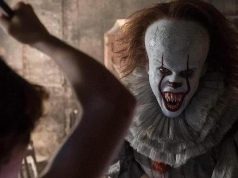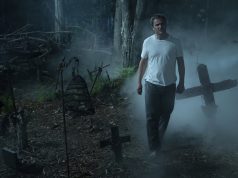
It’s not fair to call “Replicas” the stupidest movie of 2019. The year is only two weeks old — and besides, it was supposed to be the stupidest movie of 2017, before it got shelved for reasons that become apparent upon viewing it.
An affectless Keanu Reeves whisper-mumbles his way through the role of Will Foster, a biotech engineer who has moved with his doctor wife, Mona (Alice Eve), and their three children to Puerto Rico, where he’s employed at a well-funded research lab that’s trying to transfer human consciousness into robots. They’ve found a way to record a person’s brain onto a hard drive (it involves jabbing a needle into the eye of a living or very recently deceased person), but when they put the digital brain into a robot, the robot freaks out and kills itself.
Within 15 minutes of the film’s beginning, Will’s wife and kids are dead. Grief-stricken, Will calls his brainy/snarky lab partner Ed (Thomas Middleditch) to the scene of the accident so he can scan their brains onto hard drives before it’s too late. Ed’s role in the film is to be the audience surrogate, the one who tells Will things like “What if something horrible goes wrong?” and “Let’s pump the brakes on the crazy train, all right?” Reluctantly, he downloads Will’s dead family’s brains so Will can clone them.
Wait, clone them? He’s not going to put their brains into robots? No indeed. Because in addition to the consciousness-transferring-to-robots business, this research lab has also been working on human cloning and just didn’t mention it. You pour a bunch of the person’s DNA into a special vat, clack some keys on the computer, seal it up for 17 days, and voila! Fresh-baked clone! Once Wife and Kids 2.0 are finished cooking, Will plans to transfer their minds back into them and wake them up like nothing ever happened.
You, a smart person, immediately recognize several problems with Will’s plan. Will, a moron, does not. For example, what’s Will supposed to do for the next 17 days? “You didn’t think anyone would notice your entire family was missing?” Ed/the audience asks. More inadvertent hilarity ensues when there are only three clone-baking pods available and Will has to choose which of his children he’s not going to resurrect (his wife’s a shoo-in). After making his choice, he erases all memory of that person from Mona and the other two kids’ brain hard drives — it’s easy; you just do a search for the person’s name in the directory and it finds the relevant memories — and then scurries around the house removing photographs and other evidence of that child’s existence.
Ed also points out that it’s only a matter of time before their bosses notice that the research facility’s clone pods are all missing. How Will feels about this is hard to say, as this is one of the movies where Keanu Reeves does not express convincing emotions of any kind (i.e., it is like at least half of all Keanu Reeves movies).
The film’s premise grants ample opportunity for horror (what if the clones are “different” somehow?), thrills (what if someone finds out?), and/or comedy (self-evident). It could have been a campy “mad scientist” movie about a single-minded genius who will stop at nothing to achieve his goals. It could have been a sci-fi drama about loss. Instead, it’s none of those things. It never leans into any of the possibilities in favor of remaining a dumb, middle-of-the-road non-entity without purpose. The lazy screenplay (by Chad St. John, of “London Has Fallen” and “Peppermint”), flat direction (by Jeffrey Nachmanoff), and lifeless performances (by everyone) create a tedious, ludicrous mess laden with glaring plot holes and general imbecility. It’s a replican’t (I’m not sorry).
D (1 hr., 47 min.; )





